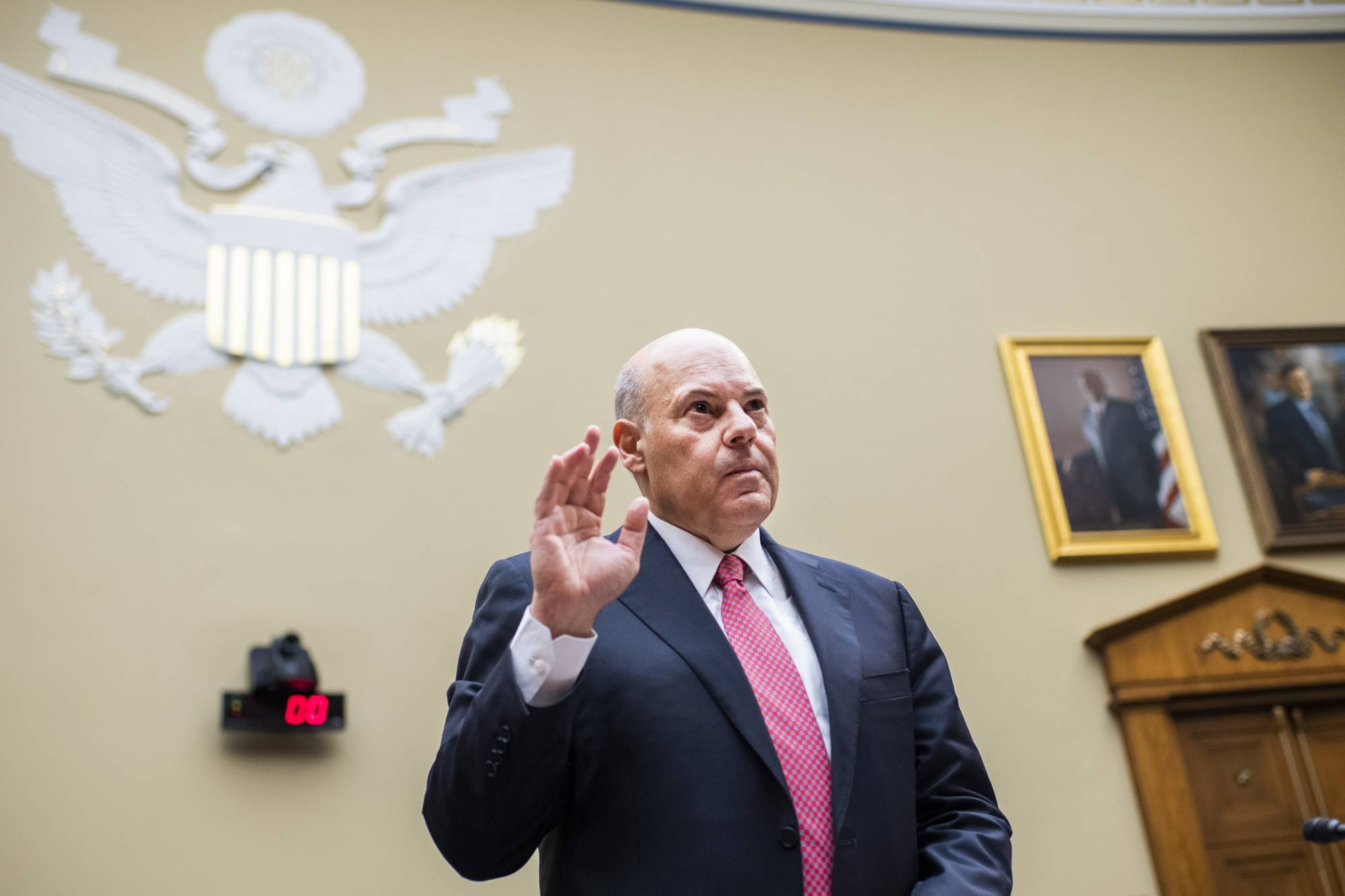Big unwind begins: Republicans target crisis financial rules
Dodd-Frank financial rules under fire as Republicans look to roll back regulations
WASHINGTON (AP) — Emboldened by a business-friendly president, Republicans in Congress are moving to unwind the stricter regulations that took effect after the 2008 financial crisis and Great Recession.
A House committee takes up legislation Wednesday that would defang the tighter rules. While passage by the GOP-controlled House could come in a few months, the Senate — where Republicans have only 52 of 100 seats — poses an obstacle.
The 2010 Dodd-Frank law was enacted by Democrats and President Barack Obama to respond to the crisis, putting the stiffest restrictions on banks and Wall Street since the 1930s Depression. It clamped down on banking practices and expanded consumer protections to restrain reckless conduct by financial firms and prevent a repeat of the 2008 meltdown.
The sweeping legislation rolled out by Rep. Jeb Hensarling, the Texas Republican who is Dodd-Frank’s fiercest foe and heads the House Financial Services Committee, would deliver a body blow to the financial law.
“Supporters of Dodd-Frank promised it would lift the economy, end bailouts and protect consumers,” Hensarling said in a statement. “Yet Americans have suffered through the worst recovery in 70 years, Dodd-Frank guarantees future bailouts for Wall Street, and consumers are paying more and have fewer choices.”
Only a few weeks in office, President Donald Trump launched his attack on the financial law, ordering up a government review of the complex legislation that has been filled out with hundreds of rules written by regulators in a six-year slog. Trump says the restrictions on banks have crimped lending, the economy and job creation.
“We’re going to be doing a big number on Dodd-Frank,” he promised in late January.
While the review due in June could provide a blueprint, it will take legislation to make a wholesale revamp of the law.
Wielding a heavy knife, Hensarling’s bill calls for repealing about 40 provisions of Dodd-Frank. It goes to the heart of the law’s restrictions on banks. First, there’s a new trade-off: Banks could qualify for most of the regulatory relief in the bill so long as they meet a strict basic requirement for the capital they build to cover unexpected big losses.
Federal regulators would lose the power to dismantle a failing financial firm and sell off the pieces if they decide its collapse could endanger the system. To be repealed: the Volcker Rule, which bars the biggest banks from trading for their own profit. The idea behind it was to prevent high-risk trading bets that could implode at taxpayer expense.
The legislation paints a bull’s eye on the Consumer Financial Protection Bureau. The five-year-old agency is a prime target for Republicans, who have long accused it of regulatory overreach. While it enforces consumer-protection laws, the CFPB also gained powers under Dodd-Frank to scrutinize the practices of virtually any business selling financial products and services: credit card companies, payday lenders, mortgage servicers, debt collectors, for-profit colleges, auto lenders, money-transfer agents.
Hensarling’s bill would eliminate those powers. And it would allow the U.S. president to remove the CFPB director at will, without needing a specific cause for firing. That’s the subject of a battle currently in federal court. Meanwhile, Hensarling and other Republicans have called on Trump to immediately fire CFPB Director Richard Cordray, an Obama appointee, in what has become a nasty partisan brawl.
The CFPB would be renamed the Consumer Law Enforcement Agency. No longer would its funding come from the Federal Reserve; the CFPB would have to depend on Congress to dole out the money as most federal agencies do. It would lose its authority to write rules or take enforcement action on payday loans.
The targeting of the CFPB especially rankles Democrats and consumer advocates. The agency carried out an ambitious program of investigations across the spectrum of financial products, wrote new rules for mortgage lending and opened a vast new database for consumers to lodge specific complaints against financial companies. As a result of its enforcement actions, the CFPB says it has recovered $11.7 billion that it returned to more than 27 million consumers harmed by illegal practices.
“This reckless piece of legislation makes the wrong choice for consumers and the economy, while Wall Street and predatory lenders cheer,” said Ed Mierzwinski, consumer program director at U.S. Public Interest Research Group.
Among other changes to Dodd-Frank that the bill, called the Financial Choice Act, would make:
—Repeal the Federal Reserve’s authority to set a cap on how much banks can charge businesses for handling debit card transactions, known as “swipe fees.” The Fed set the cap at an average of about 24 cents per debit-card transaction. Prior to the cap, fees averaged 44 cents per swipe.
—The Fed also would lose its power to supervise and set rules for non-bank financial firms.
—The Financial Stability Oversight Council, a group of top federal regulators, would be stripped of its authority to label certain non-bank financial firms as potential threats to the system because their collapse could threaten the economy.
Copyright © 2024 Federal News Network. All rights reserved. This website is not intended for users located within the European Economic Area.





